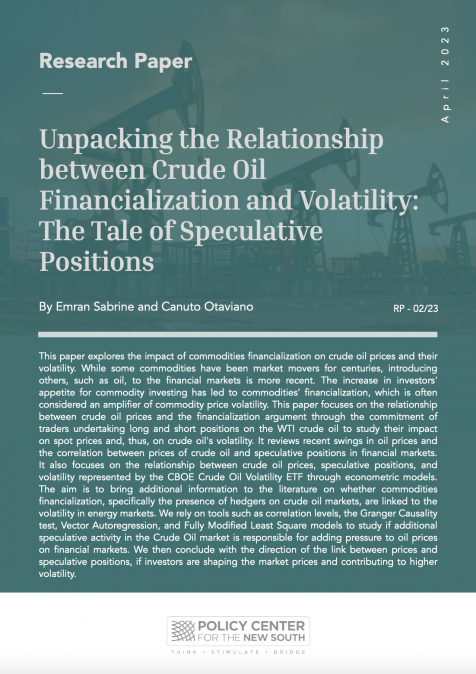Publications /
Research Paper
This paper explores the impact of commodities financialization on crude oil prices and their volatility. While some commodities have been market movers for centuries, introducing others, such as oil, to the financial markets is more recent. The increase in investors' appetite for commodity investing has led to commodities’ financialization, which is often considered an amplifier of commodity price volatility. This paper focuses on the relationship between crude oil prices and the financialization argument through the commitment of traders undertaking long and short positions on the WTI crude oil to study their impact on spot prices and, thus, on crude oil's volatility. It reviews recent swings in oil prices and the correlation between prices of crude oil and speculative positions in financial markets. It also focuses on the relationship between crude oil prices, speculative positions, and volatility represented by the CBOE Crude Oil Volatility ETF through econometric models. The aim is to bring additional information to the literature on whether commodities financialization, specifically the presence of hedgers on crude oil markets, are linked to the volatility in energy markets. We rely on tools such as correlation levels, the Granger Causality test, Vector Autoregression, and Fully Modified Least Square models to study if additional speculative activity in the Crude Oil market is responsible for adding pressure to oil prices on financial markets. We then conclude with the direction of the link between prices and speculative positions, if investors are shaping the market prices and contributing to higher volatility.











